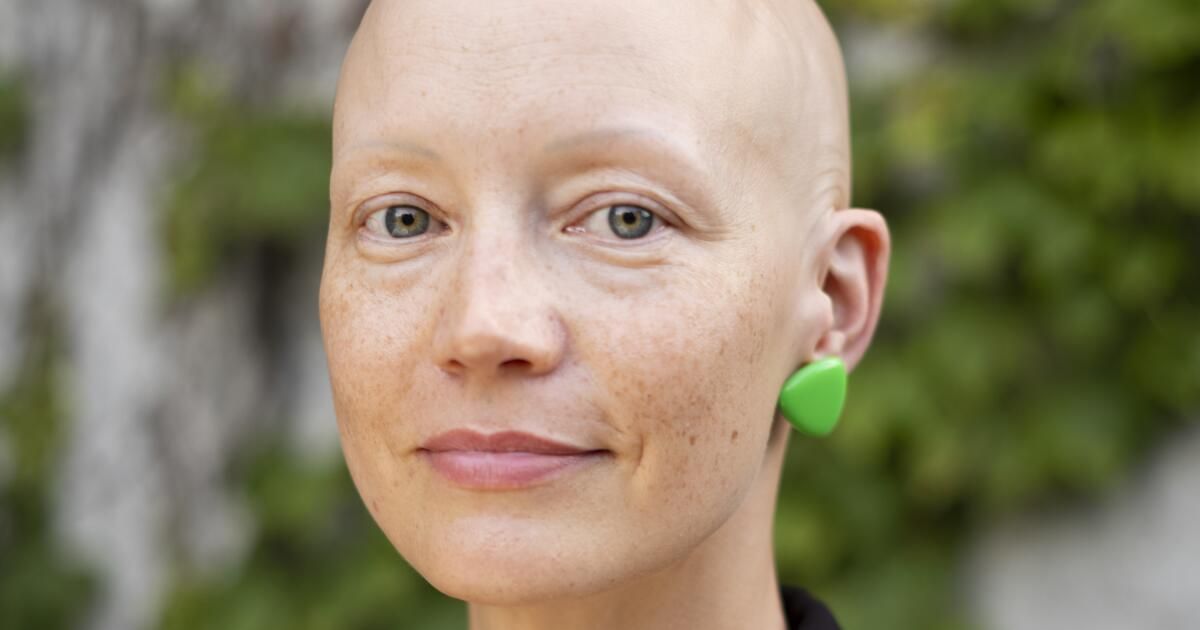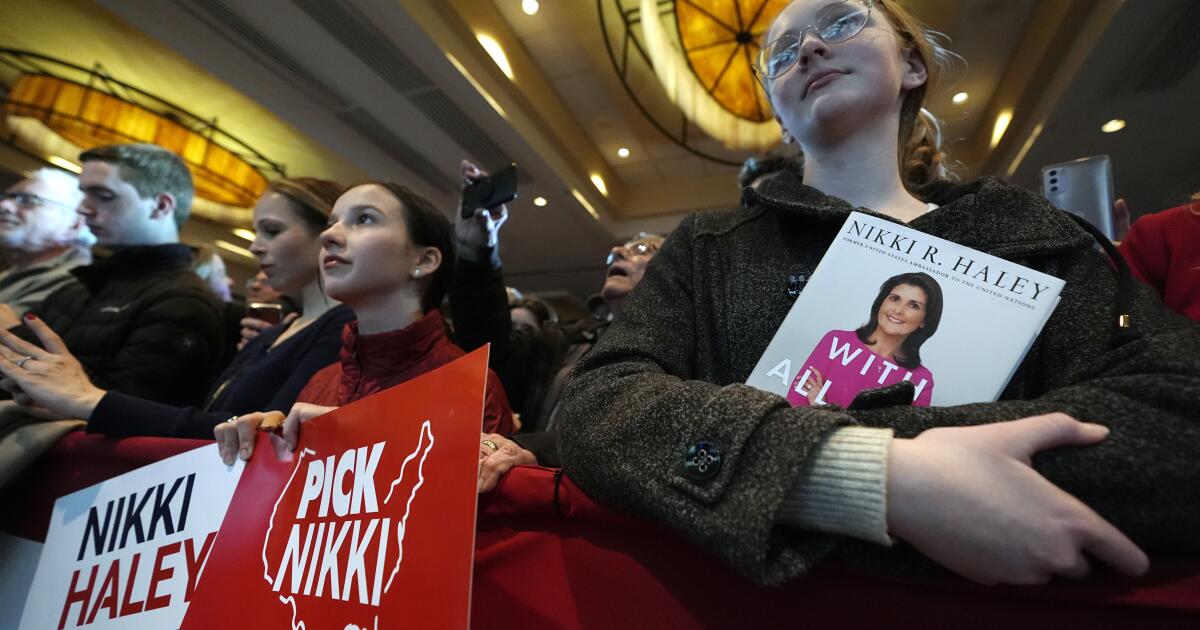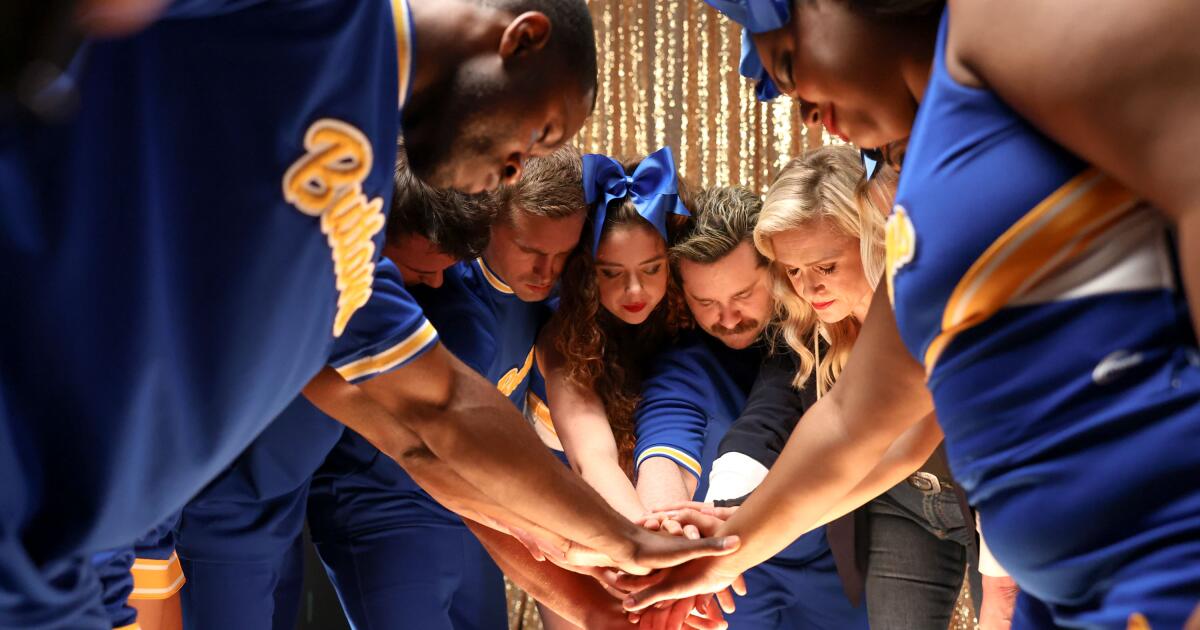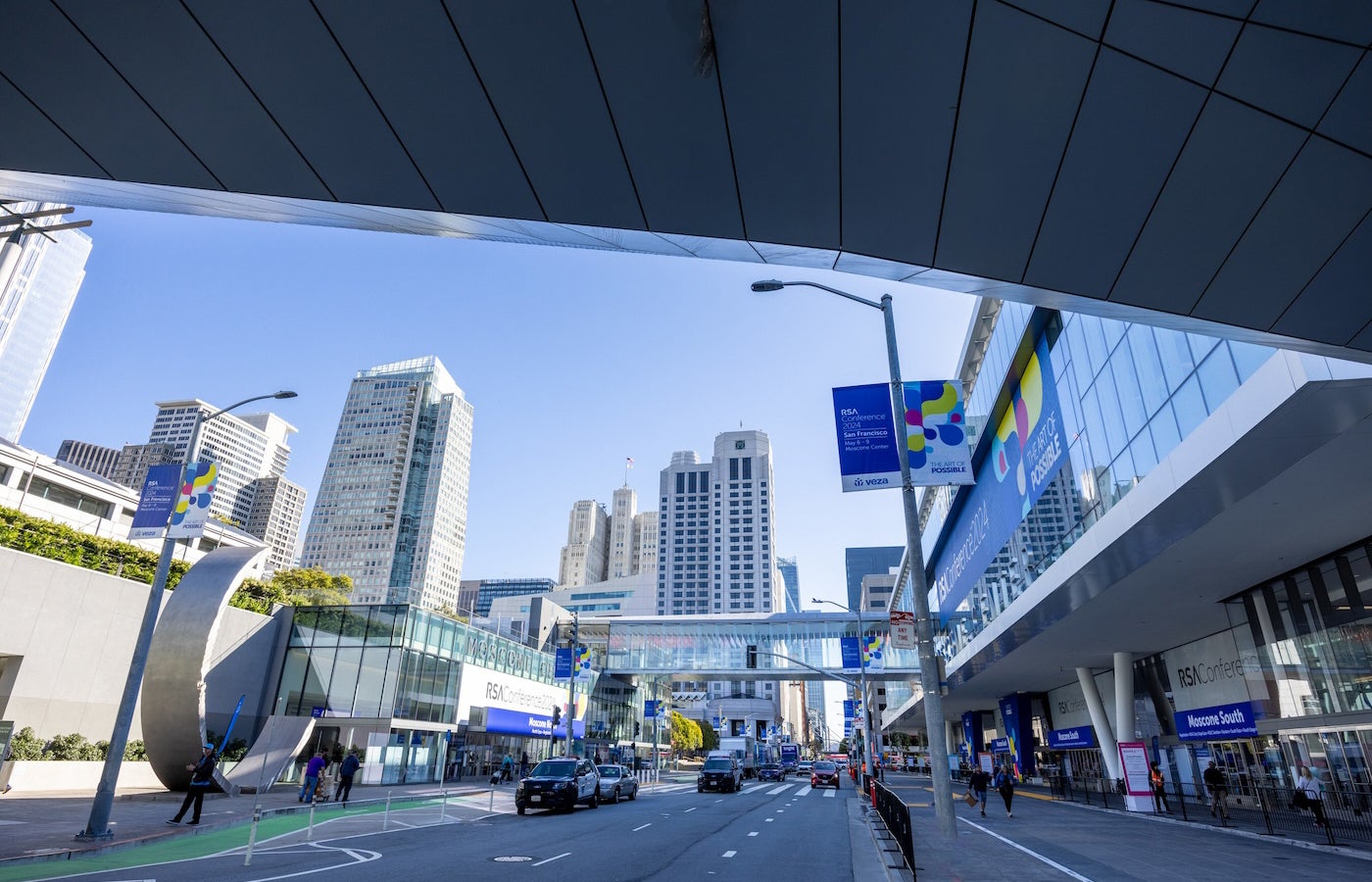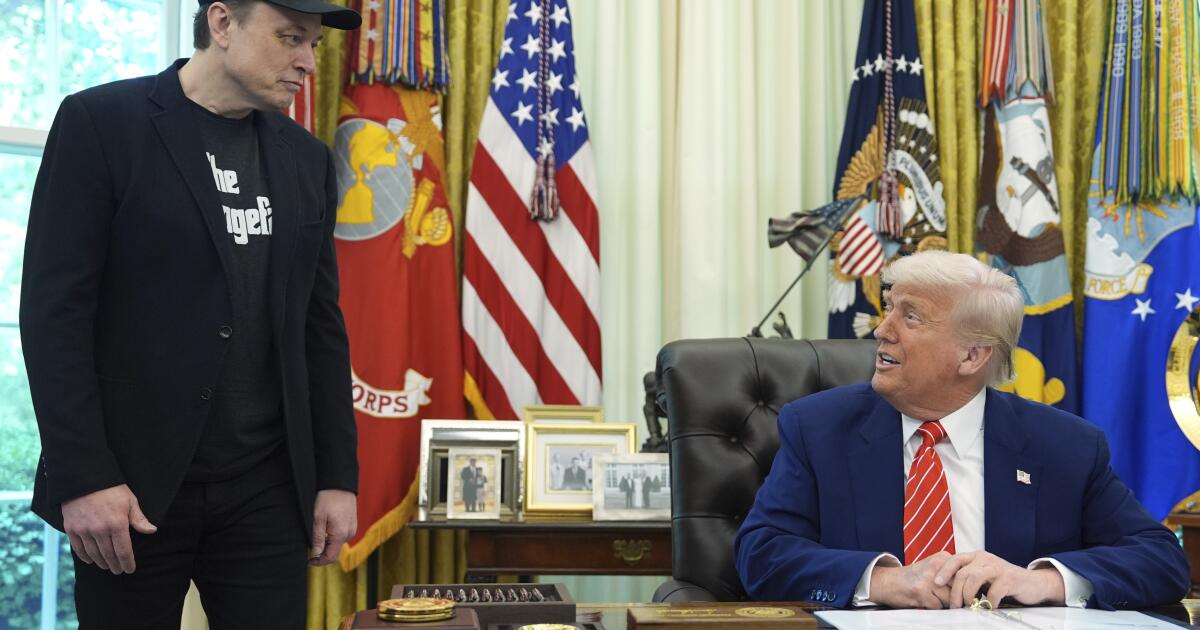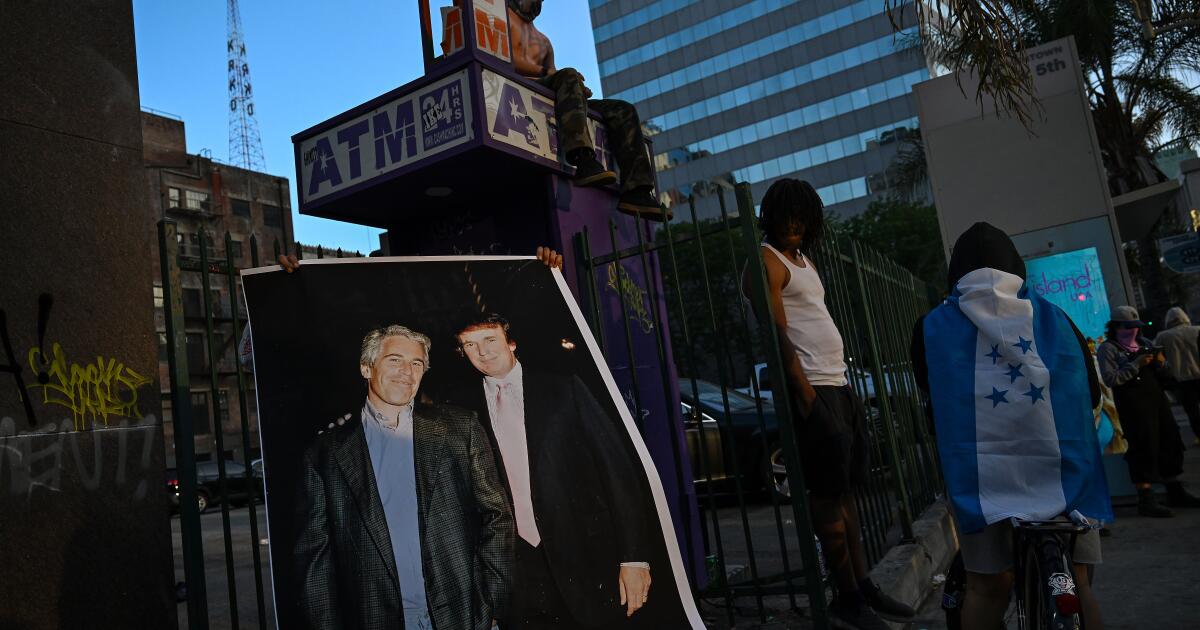Book Review
Hum
By Helen Phillips
Marysue Rucci: 272 pages, $27.99
If you purchase books linked on our site, The Times may earn a commission from Bookshop.org, whose fees support independent bookstores.
Today’s news has an apocalyptic edge that leaves us in a permanent state of high alert. Wildfires are raging around the planet, hurricanes are hitting early and harder, artificial intelligence is picking up on what we think, and it was even recently reported that the effects of climate change are so profound that they are slowing down the Earth’s rotation, slightly increasing the length of our days, and potentially disrupting the computer systems that control GPS navigation and the power grid. Is it any wonder, then, that contemporary fiction is replete with works that imagine what it would be like to survive the end of the world as we know it?
In Hum, Helen Phillips has written a haunting, electric novel that blurs the lines between dystopia and reality. What makes it especially chilling is the mastery with which it taps into the sense we have in our own lives that what was once the stuff of science fiction has infiltrated everyday life. An existential anxiety hangs over her protagonists, which in turn infects the reader. And while it’s not a pleasant feeling, Phillips’ skills as a stylist and keen observer of human nature keep us feverishly turning the pages. And her unexpected humor lightens the mood.
Protagonist May Webb and her family live on a treeless, overheated planet that feels post-apocalyptic, but there has been no apocalypse, as if it were something out of Dr. Seuss’s “The Lorax”: what has rendered their cityscape bleak and barely habitable is a gradual, toxic combination of global warming, consumer culture, and technology — though the latter is also what enables “normal” life. AI-powered robots, known as “hums,” are as numerous as people, performing essential jobs and programmed to offer patiently delivered advice on any problem, along with verbal prompts to buy things that algorithms suggest will tempt consumers.
On the first page we meet the first drone. It is a surgical instrument that will subtly but permanently alter May’s face so that she will no longer be identifiable to the devices that monitor the town’s inhabitants. May’s only reason for choosing to be a guinea pig in this startup’s experiment is monetary: she is unemployed (replaced by a drone) and going under the knife will earn her the equivalent of ten months’ salary. Putting aside her own misgivings about the operation (and those of her husband, Jem), she hopes that the influx of money will ease the family’s financial woes and that her appearance will not change so drastically that her children will be unable to recognize her. In the novel’s opening scene: “The needle inched closer to her eye and she tried not to flinch… The drone paused to dip its needle-finger in antiseptic once more, then extended its arm again, a meticulous surgeon.” When it ends, the hum reassures its patient: “'Beautiful, May.' … She felt that the hum was not declaring her beautiful, but was reacting to her own handiwork.”
May is a mother of two young children, daughter Lu and son Sy, who have not known a time when the air was mostly breathable or when their wrists were not attached 24/7 to “bunnies,” an extreme version of modern-day smartphones. Not carrying them is forbidden; without them, parents and local authorities cannot monitor their physical location and vital bodily functions. Lu and Sy have formed close bonds with their bunnies and never want to be separated from them. But, eager for a family vacation without screen time, May imagines a bunny-free weekend at the Botanic Gardens, an expensive virtual biosphere where visitors can pretend they are in a real forest. Jem is hesitant about whether or not to splurge on their phones, but once they enter this cool oasis, with its waterfalls, strawberries, and starry skies, all doubts are dispelled. After a few days, May and Jem agree that the experience has revived them. She comments, “To me, it doesn’t feel like an illusion.” He replies, “That’s why it’s a good illusion.”
But in this alternate but plausible universe, being disconnected is… No A good idea. Disconnecting from the device is tantamount to letting down one's guard and being vigilant – a painful lesson May learns when her children wander off and she has no way of tracking them.
While Phillips is portraying a near-future that many of us can easily imagine, she’s also digging into the terrors of motherhood, amid its joys, as she did brilliantly in her acclaimed 2019 novel, “The Need.” Parents have always feared for their children’s safety, but this generation of writers is faced with a host of unknowns that heighten the stakes — not the least of which is an epidemic of isolation and loneliness. May’s family retreats at night to individual “wooms,” cocoon-like enclosures that isolate them, where they can access memories and streaming services or converse with confidants like Siri. When May hungers to unlock her husband’s innermost thoughts, she slips into his woom when he’s not around to parse his search history.
Ironically, the kindest and most sensible creatures in this strangely beautiful novel are the buzzes, who are not subject to the angst and apprehension that humans cannot escape. When a buzz that comes to May's rescue visits the Webbs' apartment, the family seems to forget that it is not human. May invites the buzz to join them for dinner, and the buzz accepts.
“'Come!' the children said breathlessly, leading the drone to the seat at the head of the small dining table. … 'We need five placemats,' Lu announced. 'Actually, Lu,' said the drone, 'I don't eat.' 'Oh,' said Lu, 'okay.' 'But if you want, I can pretend to eat,' said the drone.”
Phillips has given us much to think about, but there is also something comforting in this moral: a tribute to our adaptability, our capacity to love, and our willingness, however grudgingly, to embrace the new. While nostalgia is not in this writer's arsenal, she is a fierce critique of “progress.” In this book she urges us not to give up our power of choice and resistance, but to be thoughtful warriors who decide for ourselves how we will inhabit our endangered planet.
Leigh Haber is a writer, editor, and editorial strategist. She is a former director of Oprah’s Book Club and book editor for O, The Oprah Magazine.

